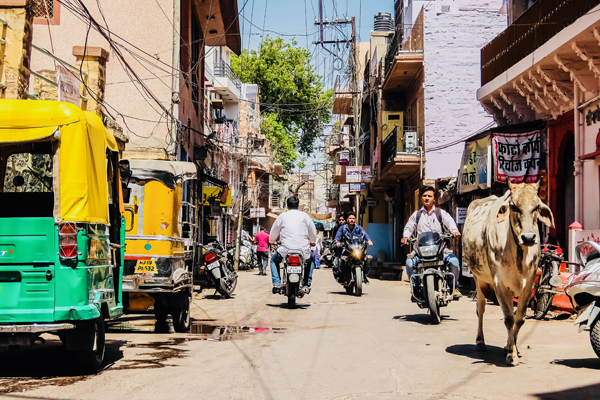Moving to India
Summary: Moving to India? We've compiled a laundry list of advice from expats living in India about what to bring, apartments, expat life and more. It's must-read guide for anyone researching how to move to India.

Please login to continue reading this article.
Not a member? Join Today (it's free).
About the Author
 Betsy Burlingame is the Founder and President of Expat Exchange and is one of the Founders of Digital Nomad Exchange. She launched Expat Exchange in 1997 as her Master's thesis project at NYU. Prior to Expat Exchange, Betsy worked at AT&T in International
and Mass Market Marketing. She graduated from Ohio Wesleyan University
with a BA in International Business and German.
Betsy Burlingame is the Founder and President of Expat Exchange and is one of the Founders of Digital Nomad Exchange. She launched Expat Exchange in 1997 as her Master's thesis project at NYU. Prior to Expat Exchange, Betsy worked at AT&T in International
and Mass Market Marketing. She graduated from Ohio Wesleyan University
with a BA in International Business and German.
Some of Betsy's articles include 12 Best Places to Live in Portugal, 7 Best Places to Live in Panama and 12 Things to Know Before Moving to the Dominican Republic. Betsy loves to travel and spend time with her family. Connect with Betsy on LinkedIn.
Additional Information:
- India Guide
- Healthcare & Health Insurance in India
- Members Talk about Healthcare & Health Insurance in India
- Best Places to Live in India
- Real Estate in India
- Guide to Real Estate in India
- Pros & Cons of Living in India
- Cost of Living in India
- Pros and Cons of Living in India
- Chikungunya Disease in India
- Zika Virus in India
- How to Rent a Home in India
- 2024 Guide to Living in India
- Pros and Cons of Living in India 2024
- 2024 Guide to Moving to India

 India
India

